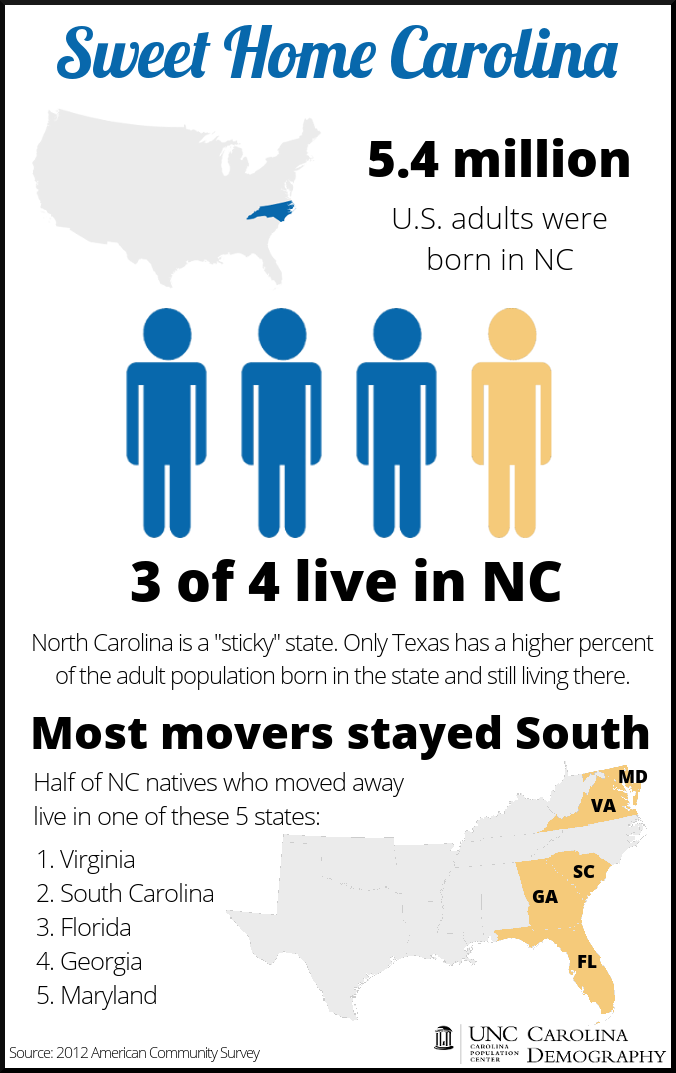Sweet Home Carolina

North Carolina is a sticky state; only Texas is stickier. (And I’m not talking about humidity.) “Sticky” states have a high percentage of adults who were born in the state still living there.
Just as migration patterns highlight the relative appeal of a location—individuals tend to move to areas with greater opportunities and away from those without them—“stickiness” may be another gauge of an area’s attractiveness. The same educational and employment opportunities that bring people into an area also work to keep residents there.
Nationwide, 63% of U.S. adults were living in their birth state in the 2012 American Community Survey. North Carolina’s “stickiness” factor is higher: 72% of Carolina-born adults still live in the state.
Forty-seven percent of NC-born adults are married; more than half (56%) are married to another NC native. When NC natives get together, they rarely move away: 9 out of 10 NC-born couples are still living in the state.
Among NC-born adults married to individuals born elsewhere, 23% are living in their spouse’s birth state.
The majority (81%) of married NC-born adults are living in their birth state or the birth state of their spouse.
Half of the 1.5 million NC-born adults living outside of NC were living in one of 5 southern states in 2012: Virginia, South Carolina, Florida, Georgia, or Maryland. Another 70,000 were living in Texas and 64,000 were living in Tennessee.
Compared to other groups, NC-born Asian and Hispanic individuals are much less likely to stay in state: more than half moved away. Asian movers were most likely to go to California (26%) while Hispanics were most likely to go to Florida (20%). White movers most frequently went to South Carolina (16%). Virginia was the top destination for black movers (15%).
Individuals who move away have higher educational attainment and higher incomes, reflecting the higher demand for college graduates in the national labor market. Nearly one-third of movers have a college degree (or higher) compared to 19% of those who stay.* Among currently employed NC-born adults, movers have a median income of $39,500 compared to $30,000 among stayers.
A 2009 Pew Social & Demographic Trends report on American mobility found similar patterns. The researchers noted that college graduates “move longer distances — and move more often — than Americans with a high school diploma or less, and employment plays a greater role in their decisions about where to live.”
We know that work is a key factor in decisions to move—1 in 2 moves to North Carolina are for work-related reasons—and we shouldn’t be worried about the education and income differences between leavers and stayers: North Carolina attracts more than enough college-educated people from other states to make up for those who leave the state. North Carolina isn’t just a sticky state—it’s also a magnet state—and I’ll explore characteristics of migrants to North Carolina in next week’s post.
*Analysis of educational attainment was limited to NC-born adults 25 and older.
Data used in this analysis were drawn from IPUMS-USA.
Your support is critical to our mission of measuring, understanding, and predicting population change and its impact. Donate to Carolina Demography today.